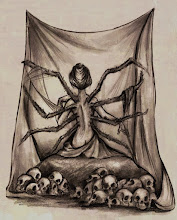Minerva Musings
For the past few weeks, I've been obsessed with Minerva. I'm seeing owls everywhere, even in my dreams. I believe she has a message for me, and I've just got to put two and two together to figure out what it is.
In my dreams, I see owls. I always equate them with wisdom. But I also get this overwhelming feeling of protection and defense. Defensive warfare rather than attacking. Like I didn't provoke the fight, but, by gods, I'll be happy to finish it up for you. There's a power, an inner strength, and a loyalty there, along with a sense of fair play. But I'm not sure what it all means.
I thought that the best way to figure out what she might be trying to relay to me, I would do some research on the Goddess Herself. I knew that she was associated with Athena, but I remembered that often, while the Greek and Roman names are sometimes used interchangeably, there's some attributes that are given to one but not the other.
===============
Like her Greek counterpart, Minerva was also born from her father's head, full-grown and clad in armour. Ovid called her the "goddess of a thousand works". She presided over the crafts of men (agriculture, navigation) and women (spinning, weaving, and needlework). She was also a warlike deity, but it was defensive war that she patronized. The serpent and the owl are sacred to her. The serpent is an emblem of life energy and the creative impulse. The owl is a symbol of death and wisdom. Thus Minerva, a goddess of dawn and wisdom, is also a goddess of death and transformation.
She was wisdom incarnate in female form, the goddess therefore of the application of intellect to everyday work, thus of commerce and crafts. She was also said to be the inventor of music, that most mathematical of arts, as well as the instruments on which it is played.
===============
So what is she trying to tell me? How is she relevant to my life, and where are her energies at work?


0 Comments:
Post a Comment
<< Home